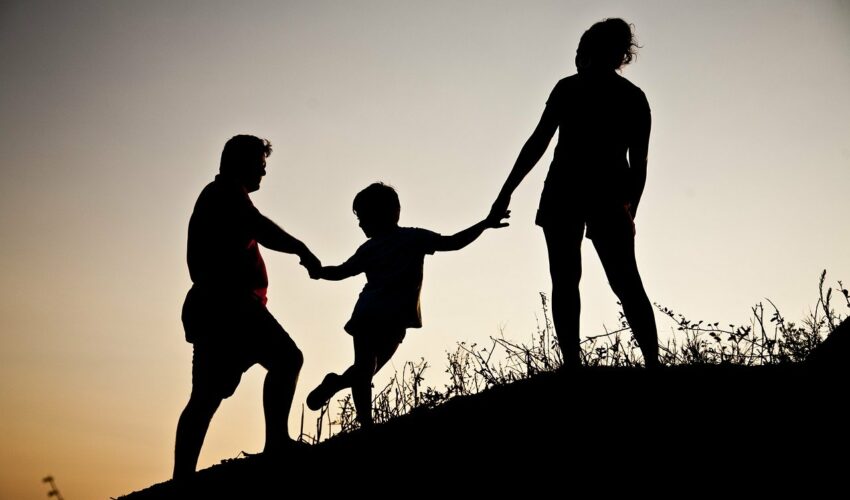Writing a Will is something we should all consider doing at some point in our lives. A Will is a legal document explaining your last wishes and can include who you would like to leave your assets to, what your funeral arrangements should be and also perhaps setting up trusts for loved ones to ensure their financial security, or instructions to leave something to your favourite charity. If you’re a parent then making a Will could be one of the most important things you do when planning for your children’s future. Without a Will, you will have no control over who will look after your children in the event of your death. In the event that both parents die, who will look after your children will become an even more pressing issue. Additionally, without a Will in place, you will have no say on what they will inherit from your estate or who would look after their inheritance until they’re old enough to receive it. Writing a Will ensures your chosen legal guardian will take responsibility for the welfare of your child when you die. In this article, what happens to my child if both parents die UK, we take a look at these issues in more depth and describe the mechanics of your Will.
Free Initial Telephone Discussion
For a free initial discussion on how we can help you create your Will, get in touch with us today. We will review your situation and discuss the options open to you in a clear and approachable manner. Early expert legal assistance can help ensure your final wishes are accurately recorded and also avoid the stress of dealing with these issues on your own. Simply call us on 0345 901 0445 or complete our online enquiry form and a member of the team will get back to you.
What will happen to my child if one parent dies?
Every parent wants the very best for their children. As a parent, the reality of bringing up children is not without its challenges. You will have your own way of educating and bringing them up. If you are a single parent and have sole custody an important factor to consider is who should take on this responsibility in the event of your death. In certain circumstances, the other parent may be in a position to take over the responsibility but in many cases this isn’t possible and you will need to consider alternatives. Consequently, it is important to include in your Will the name or names of the people you would like to act as guardians to your children. You should, if possible, name back up guardians if the circumstances of your chosen guardians change. Remember to let your chosen guardians know you have named them in your Will in case they have any objections.
What happens to a child if both parents die?
If both parents die before appointing a guardian, the courts will be left to approve who takes care of them. This will usually be a close relative, but it may not necessarily be the person you would choose.
If both parents die after naming guardians in their Will, the appointed guardians will be called upon. They would then take full responsibility for your children until they reach adulthood.
How do I appoint a legal Guardian?
It is important to recognise that the guardianship appointment would only take effect if there was no one else alive who already has Parental Responsibility. So normally the terms of the guardianship appointment would state that it only takes effect if both parents have died.
The next step is to consider who, outside of the natural parents, would be most suitable. Sometimes this is an obvious choice but in a lot of cases, this isn’t always the case and careful thought must be given to the matter. Often, with younger parents, the grandparents present themselves as an obvious choice. This may be the perfect solution, depending on the age of the grandparents. However, the parents may not have had the best of childhoods and as such may not consider the grandparents to be a viable option.
Another factor to consider is the existing relationship between the child and their grandparent. A further consideration is the age of the child and the grandparent. Whilst a grandparent may be able to cope looking after your child if you were to die in the next few years, would they be able to do so in 10 years’ time when your child could be a teenager and they may be in their 70s or 80s?
An alternative would be to look towards your siblings. They may already have children themselves so would be comfortable with the challenges involved. However, there may be multiple siblings on both sides of the family so making the right choice could prove problematic. Also, if your siblings already have children, do you approve of the way they are being brought up? You and your partner could have Victorian values whereas your sibling might be far more progressive and liberal with their approach to parenting.
There are also practical considerations to take into account, such as the geographical location of the proposed Guardian. Do they live in another part of the country? Think about the upheaval that could cause if your child has to relocate, move school and make new friends at a time when they have just lost their parent. Some people may want to choose a Guardian who lives abroad. Whilst it is possible to put this in your Will, the appointment may not take effect if the child is prevented from moving to the Guardian’s country because of immigration controls.
The choice can often be difficult but as long as you remain mindful of what is best for your children, you should hopefully find a suitable guardian. The worst outcome is that you do nothing and leave your loved ones potentially arguing over what is in the child’s best interests. This could end up in Court with a Judge ultimately making the decision – which may not have been what you would’ve wanted.
Is there a recognised standard for writing a will?
In theory, you can write your will on the back of an envelope. However, as it is a legally binding document it must meet certain criteria. It needs to be witnessed and signed by two independent adults and dated. These witnesses cannot inherit anything from your will or benefit from your will in any way (although they can act as executors). Your Will should also name your executors, who are authorised to gather in your assets and divide them up according to your instructions. This process is known as probate. As long as the executor is not a witness, they can be a beneficiary of the Will.
How we can help
We have a proven track-record of helping clients draft their Wills. This includes relatively straightforward estates but also complex estates where assets are held all over the world. We will guide you through all the necessary legal due diligence in a comprehensive and timely manner. We firmly believe that with the right solicitors by your side, the entire process will seem more manageable and far less daunting.
How to Contact our Wills and Probate Solicitors
It is important for you to be well informed about the issues and possible implications of writing your Will, even more so as a parent. However, expert legal support is crucial in terms of ensuring your final wishes are met as you would want them to be.
To speak to our Wills and Probate solicitors today, simply call us on 0345 901 0445, or allow a member of the team to get back to you by filling in our online enquiry form. We are well known across the country and can assist wherever you are based. We also have offices based in Cheshire and London.






Leave a Reply
You must be logged in to post a comment.